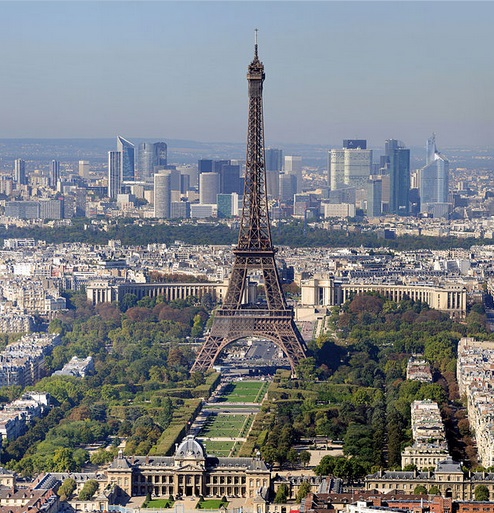Friday, 27/02/2026 | 15:47 GMT+7
The French gas utility named Engie (formerly GDF Suez) is developing new geothermal projects in the Paris, France, area to the tune of 50 MW, which will bring the company’s total geothermal capacity there to 100 MW. A single plant, Noisy-le-Sec, has a capacity of 10 MW. So when will Engie reach 100 MW of geothermal? The answer is within 2016, so the addition of the new 50 MW is expected to happen rapidly.
We may think of geothermal as being a technology typically located in remote areas, not at all near huge urban centers, but in this case that is exactly where the development is taking place.
“This is the most active period for geothermal in two decades. The geology of the Paris region is favorable and its population density makes projects worthwhile,” explained Engie employee Damien Terouanne. By the end of this year, there may be a total of 40 geothermal projects in the greater Paris area.

One advantage geothermal has over wind and solar is no downtime due to periods of cloudiness or low wind. Electricity created by geothermal is usually available at all times, and is in no way dependent on weather. In times of low demand, when people are sleeping, electricity generated by geothermal could also be stored in batteries, flywheels, or a combination of the two.
Mercedes-Benz (Daimler) just announced it is getting into the energy storage business and its products might just be the right complement to new geothermal in Paris. (This notion is getting too far ahead of the game, but it is not completely unreasonable.)
Engie went through a name change to reflect the new reality currently underway that renewable energy is a growing part of the global energy mix. “Why this name change? Because the world of energy is changing, we’re moving towards a less centralised, less carbon-intensive energy world, away from the centralised world of yesterday,” said Chief Executive Gerard Mestrallet.
Anh Tuan








 Consultation on the methodology for developing and updating energy consumption standards for four major industrial sectors
Consultation on the methodology for developing and updating energy consumption standards for four major industrial sectors
 Opening of the 2025 Energy-Efficient Equipment and Green Transition Exhibition Fair
Opening of the 2025 Energy-Efficient Equipment and Green Transition Exhibition Fair
 Energy-saving solutions and green transition promotion
Energy-saving solutions and green transition promotion
 The 9th VEPG Steering Committee Meeting: Strengthening Coordination for Viet Nam’s Just Energy Transition
The 9th VEPG Steering Committee Meeting: Strengthening Coordination for Viet Nam’s Just Energy Transition